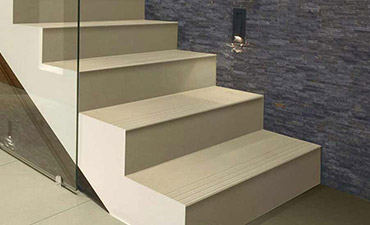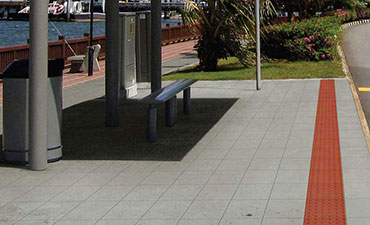Anti-Skid Tiles
In both residential and commercial spaces, safety is a top priority, especially in areas prone to moisture or high traffic. Endura Anti-skid tiles offer an effective solution to prevent slips and falls, making them ideal for various applications.
Understanding Anti-Skid Tiles
Anti-skid tiles, also known as slip-resistant tiles, are designed to enhance traction and prevent accidents on various surfaces. These vitrified tiles are essential in areas exposed to water or other substances that can create slippery conditions. By incorporating anti-skid tiles, you ensure both safety and durability in your flooring choices.
What Are Anti-Skid Tiles?
Anti-skid tiles are tiles with a surface designed to prevent slips and falls. They come in various materials and designs, including non-slip tiles and non-slip outdoor tiles, to cater to different needs and environments. The surface texture of these tiles is engineered to provide additional grip, making them ideal for both indoor and outdoor use.
Anti-Skid Tiles for Outside
When it comes to outdoor applications, Anti-skid tiles are crucial for maintaining safety, especially in areas prone to rain or spills. These tiles are designed to handle outdoor conditions while providing a secure walking surface.
Benefits of Anti-skid Tiles for Outside
Enhanced Safety: slip-resistant tiles reduce the risk of slips and falls, which is particularly important in areas that get wet frequently.
Durability: These tiles are built to withstand outdoor conditions, including UV exposure and temperature fluctuations.
Aesthetic Options: Slash-resistant tiles come in various designs and colours, allowing you to maintain aesthetic appeal while ensuring safety.
Features of Anti-skid Tiles
Texture: The surface texture of non-slip tiles provides additional grip, reducing the likelihood of accidents.
Variety: Available in a range of materials, including ceramic, porcelain, and natural stone, non-slip tiles can match any design preference.
Maintenance: Non-slip tiles are easy to clean and maintain, ensuring that their safety features remain effective over time.
Endura Johnson Slip Prevention ‘R’ Ratings for Flooring Surfaces
The slip resistance of flooring surfaces is evaluated using several tests: the BOT Digital Tribometer test, the Pendulum test, and the RAMP test.
A) Oil Wet Ramp Slip Resistance Test: DIN 51130
This test assesses the slip resistance of tiles on an inclined surface at a predetermined slope. Ratings are classified from R9 to R13. The procedure requires an operator, secured with a fall restraint harness, to walk forwards and backwards over a flooring sample coated with oil while wearing standard footwear.
B) Wet Barefoot Slip Resistance Test: DIN 51097
Conducted barefoot with soapy water as a contaminant, this ramp test determines the angle at which slipping occurs, resulting in an A, B, or C rating.
BOT-3000E Digital Tribometer
This advanced device accurately measures both the static coefficient of friction (SCOF) and dynamic coefficient of friction (DCOF), whether wet or dry.
Pendulum Test
The Pendulum slip resistance test evaluates both dry and wet conditions, providing a Pendulum Test Value (PTV) using the Munro Stanley Skid Resistance Tester. This method operates based on the Izod principle, where a pendulum of known mass rotates about a vertical spindle to measure slip resistance.
Choosing the right anti-skid tiles is crucial for ensuring safety and functionality in various environments. Whether you need non-slip tiles for outside, anti-slip outdoor tiles, or slip-resistant tiles, understanding your options can help you make an informed decision.
































